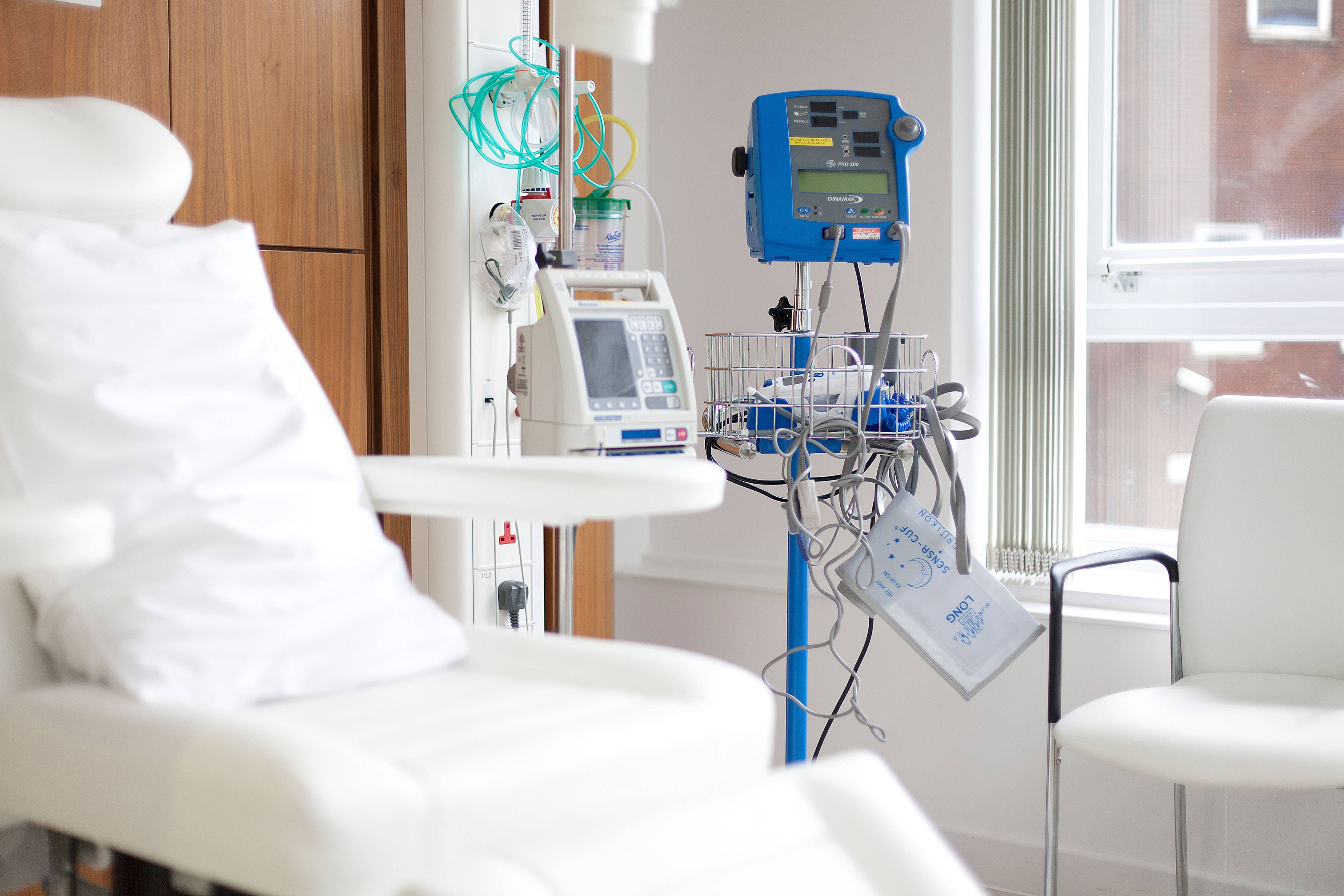Bowel cancer breakthrough as chemotherapy before surgery ‘cuts risk of return’
There are around 42,900 new bowel cancer cases in the UK every year

Your support helps us to tell the story
From reproductive rights to climate change to Big Tech, The Independent is on the ground when the story is developing. Whether it's investigating the financials of Elon Musk's pro-Trump PAC or producing our latest documentary, 'The A Word', which shines a light on the American women fighting for reproductive rights, we know how important it is to parse out the facts from the messaging.
At such a critical moment in US history, we need reporters on the ground. Your donation allows us to keep sending journalists to speak to both sides of the story.
The Independent is trusted by Americans across the entire political spectrum. And unlike many other quality news outlets, we choose not to lock Americans out of our reporting and analysis with paywalls. We believe quality journalism should be available to everyone, paid for by those who can afford it.
Your support makes all the difference.Experts have hailed “remarkable” new research which shows that giving chemotherapy before surgery for early-stage bowel cancer cuts the chance of the disease coming back by 28%.
The study, funded by Cancer Research UK, suggests at least 5,000 patients in the UK every year could benefit from a tweak to how they receive chemotherapy.
At present, chemotherapy is given after surgery to try to capture stray cancer cells that could lead to the disease coming back.
But, under the new regime, patients would receive six weeks of chemotherapy, have surgery and then 18 weeks more chemotherapy, with the effect of giving people a bigger chance of beating the disease.
A growing body of evidence is showing the value of pre-operative chemotherapy in several other cancers, and we believe that our results could transform how we approach colon cancer in the clinic
The FOxTROT trial, led by the universities of Birmingham and Leeds, involved 1,053 patients at 85 hospitals in the UK, Denmark and Sweden.
It found that giving chemotherapy before and after surgery led to a 28% reduced risk in the disease coming back within two years compared to chemotherapy after surgery.
During the study, the first group of patients received six weeks of chemotherapy, followed by surgery, then 18 weeks of chemotherapy.
The second group had normal treatment for bowel cancer (also known as colon cancer), which involved surgery followed by 24 weeks of chemotherapy.
The findings showed that patients who had chemotherapy before surgery were significantly less likely to see their cancer come back.
Scientists believe this approach could be adopted across the NHS and in countries worldwide, benefiting hundreds of thousands of patients every year.
Dr Laura Magill, associate professor at the Birmingham clinical trials unit, said: “Up to one in three colon cancer patients can see their cancer come back after surgery.
“That figure is far too high and we need new treatment strategies to stop colon cancer coming back.
The simple act of bringing forward chemotherapy, giving it before instead of after surgery, delivers some remarkable results
“The standard approach has been to give chemotherapy after surgery to eradicate any cancer cells that might have spread before surgery.
“But our research shows that giving some of that chemotherapy before surgery increases the chances that all cancer cells will be killed.
“A growing body of evidence is showing the value of pre-operative chemotherapy in several other cancers, and we believe that our results could transform how we approach colon cancer in the clinic.”
In total, 699 patients on the trial received chemotherapy before surgery.
Professor Matthew Seymour, from the University of Leeds, said: “Timing is everything when it comes to treating colon cancer.
“The simple act of bringing forward chemotherapy, giving it before instead of after surgery, delivers some remarkable results.
“Delivering chemotherapy before surgery could prevent recurrences of cancer without the need for expensive new drugs or technologies.
“It was especially encouraging to find that patients who had chemotherapy before their surgery suffered fewer surgical complications.
I got six weeks of chemotherapy before surgery and 18 weeks after, which was hard going... Eventually, it was all worth it
“Scaling up this treatment worldwide, including in low and middle income countries, could transform cancer care and save many thousands of lives.”
The scientists are undertaking two further clinical trials, FOxTROT-2 and FOxTROT-3, to investigate whether older patients also benefit from chemotherapy before surgery.
Geoff Hoggard, from Leeds, was diagnosed with bowel cancer in 2016 and took part in the trial.
He said: “I got six weeks of chemotherapy before surgery and 18 weeks after, which was hard going… Eventually, it was all worth it.”
There are around 42,900 new bowel cancer cases in the UK every year.
It is the fourth most common cancer in the UK, accounting for 11% of all new cancer cases.
It’s fantastic news that has the potential to make a real difference to the lives of the thousands of people diagnosed with earlier stage bowel cancer every year
Genevieve Edwards, chief executive of Bowel Cancer UK, said: “It’s wonderful to see such positive results from this robust trial, which we have been following with great interest.
“It’s fantastic news that has the potential to make a real difference to the lives of the thousands of people diagnosed with earlier stage bowel cancer every year.”
She said the charity looked forward to seeing longer follow up of the trial.
“Someone dies from bowel cancer every 30 minutes in the UK, so continuing to find new ways to treat the disease is crucial to save more lives.”
The research was published in the Journal of Clinical Oncology.